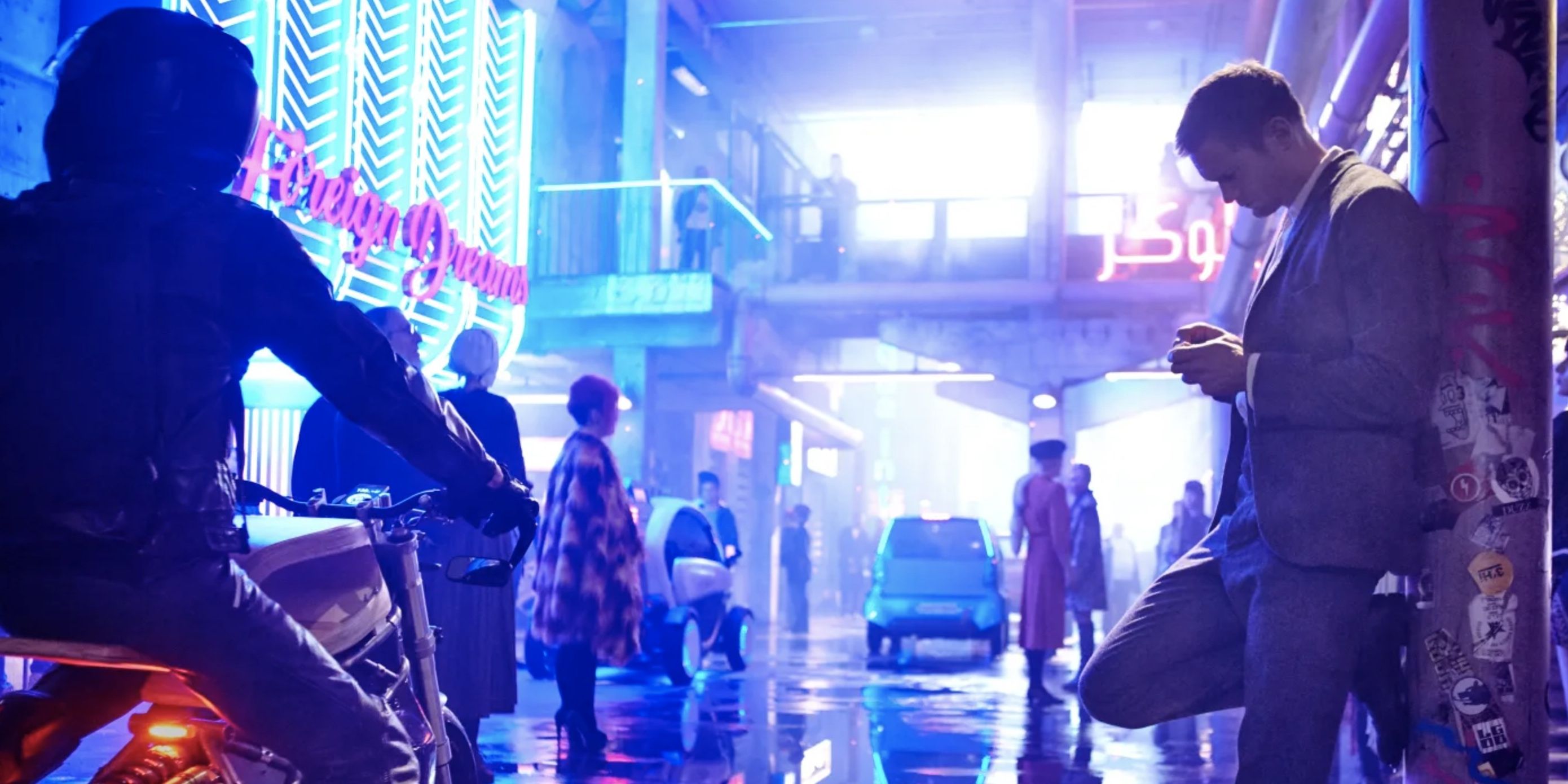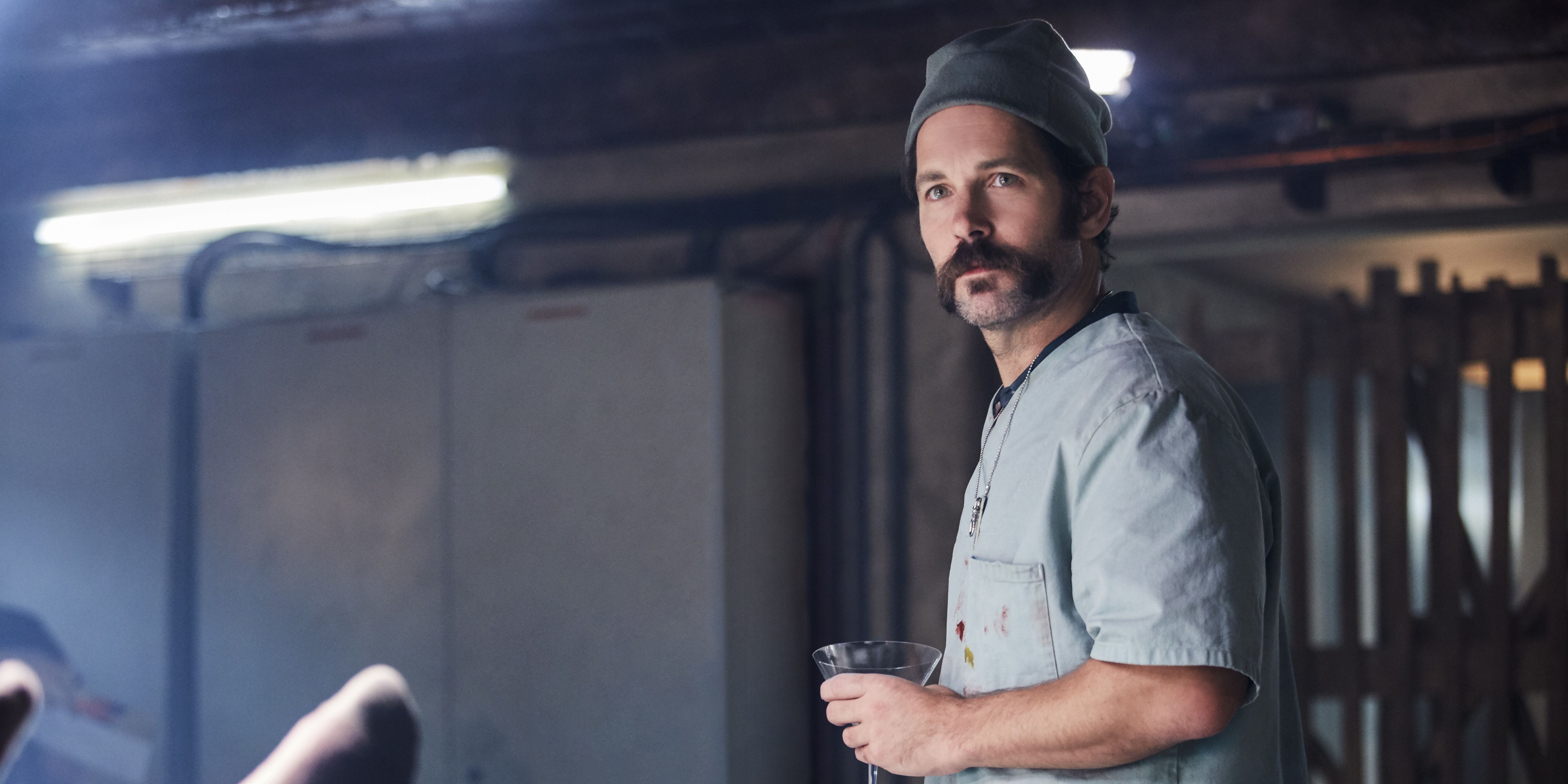People try to blame all of a film’s problems on one aspect of the production — the director didn’t understand the vision, the cast of actors didn’t give the performances needed, the effects took viewers out of the experience. But it’s rarely ever just one part of filmmaking that ruins a project, there’s usually a series of unfortunate events where so many things fall out of line that a film cannot be saved. But sometimes the stars align and one piece of a film can derail it so much that no one or thing can stop it. Sadly, this was the case for 2018’s Mute.
Mute, released on Netflix to pitiful reviews, looked like a perfect film on paper. It was helmed by acclaimed director Duncan Jones, known for his inventive stories and deep science-fiction roots. Jones is the director of the science-fiction action film Source Code and the 2016 film adaptation of Warcraft. Mute was pitched as a spiritual sequel to Jones’ directorial debut Moon — which was critically loved — set in a dystopian Berlin heavily inspired by the original Blade Runner. Along with a great director, Mute also had star power behind it. The main role of Leo was played by Alexander Skarsgård, known for his roles in Big Little Lies, True Blood, and Godzilla vs. Kong. Rounding out the main cast was Justin Theroux from The Leftovers and in a surprising casting choice, Paul Rudd, known more for his comedic roles rather than drama. All of the pieces were set, but it’s hard to save a film when its foundation is the problem.
Mute’s failings came, in no small part, from its writing. Written by Duncan Jones and Michael Robert Johnson the premise was intense and interesting — a bartender who is mute from a childhood accident (Alexander Skarsgård) has to uncover the mysteries of a near-future Berlin in hopes of finding his missing girlfriend. In his attempts, he runs into the city’s seedy characters and eventually into the lives of Cactus Bill (Paul Rudd) and Duck (Justin Theroux), two American surgeons with peculiar goals. But when the pitch was transformed into a screenplay, it seems that the magic of the story was lost.
The film begins on the right foot, introducing the character of Leo with his tragic past and Amish upbringing. His girlfriend, Naadirah (played by an underutilized Seyneb Saleh) makes an appearance but is only around long enough for viewers to know simple information about her — where she works, how she met Leo, and how much she seems to care for him. She then quickly disappears for most of the film’s over two hours of runtime. Because Naadirah isn’t that well known to audiences, it's hard for viewers to try and justify the lengths that Leo goes in search of her. When the storyline of Cactus Bill and Duck is introduced, their rapport and humor is a breath of fresh air after the dark and moody moments with Leo — but it doesn’t last for long. Bill and Duck are caught up in their own problems with Berlin’s underbelly. On top of it, Duck has a deep fixation on children, especially Bill’s own daughter Josie, that seems unnecessary to the story and begins to loom over any scene involving him moving forward in the film.
It’s when the storylines of Leo, Cactus Bill, and Duck interweave that Mute starts to fall off the rails. Both plots are fighting for screen time and have their own cast of characters for viewers to remember. Overwhelming the viewer, the story becomes muddled and the pacing loses whatever rhythm it had. It’s hard for it to be saved by the impressive science-fiction elements sprinkled into the film, like questionable robots and colorful, intense fight scenes, which try their hardest to immerse the audience back into the world. The last act of Mute brings plot twists that feel organic enough, but become part of the mess due to the characters’ actions after them. Instead of fever-pitch pacing usually felt at the end of a film, Mute drags out its final scenes to questionable lengths with no real purpose. While the film does end with a happy ending, it comes across as bittersweet, as it’s unclear how the characters got to where they are.
Because it appears that a single aspect of Mute was able to bring the film down, it brings to light the fact that it could have easily been prevented. Perhaps if the scope covered in Johnson and Jones’ script was smaller so the characters on screen could have been explored deeper, the film’s story beats could have felt more concrete. Maybe a feature-length film wasn't the right choice for Mute, which could have easily translated into television or even a miniseries. It’s a little saddening that a film with an almost perfect recipe for success was stopped by an essential piece of filmmaking.


